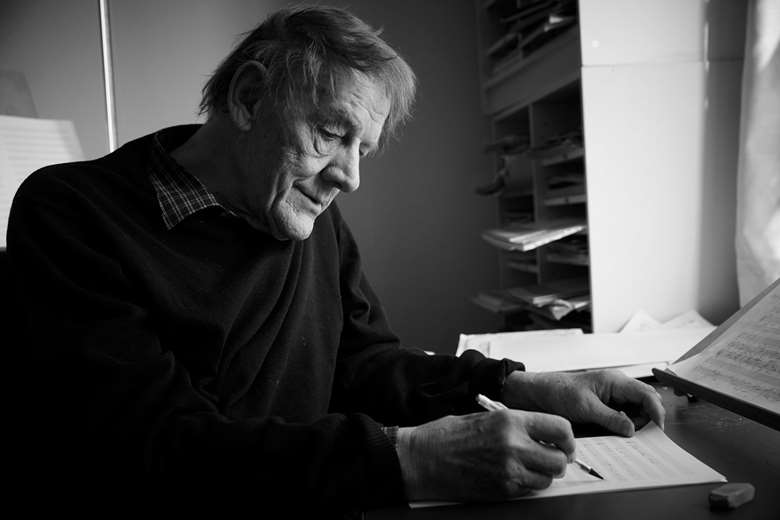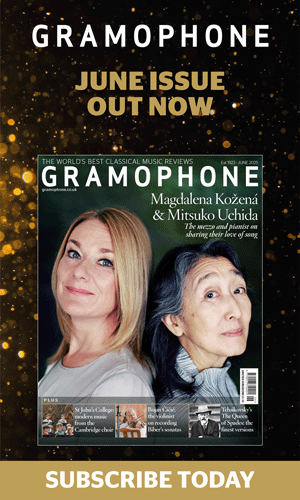Per Nørgård Obituary: 'The contemporary music world has lost an artist of colossal imagination and influence'
Andrew Mellor
Wednesday, May 28, 2025
Composer Per Nørgård: Born July 13, 1932; Died May 28, 2025

With the death of Per Nørgård at the age of 92 following a long illness, Nordic music has lost a patriarchal figure and the wider contemporary music world has lost an artist of colossal imagination and influence.
Nørgård leaves behind more than 100 hours of music created over seven decades, ranging from symphonies and sinfonietta works to solo and chamber music, film music, theatre music and cross-genre music. His teaching at the Aarhus Conservatory in Denmark helped shape the minds of a generation of composers, among them Hans Abrahamsen and Bent Sørensen. Thomas Adès, Wolfgang Rihm, Poul Ruders, Esa-Pekka Salonen, Sven-David Sandström and Britta Byström are among those who have cited him as an influence.
Nørgård performed his own songs from his childhood in the Copenhagen suburbs, with his family as an audience. He was later taught privately by Vagn Holmboe before studying at the Royal Danish Academy of Music from 1952-55 with Holmboe, Finn Høffding and Hermann D Koppel, after which he took lessons from Nadia Boulanger in Paris.
Once described by Gramophone’s Richard Whitehouse as the ‘greatest living symphonist,’ Nørgård’s early belief in music’s most structurally integral form was consolidated in his early twenties, when he initiated a fruitful correspondence with Jean Sibelius. Nørgård regarded Sibelius’s symphonies as being ‘in touch with the timeless forces of existence, with nature in the broadest sense.’ He set about taking that idea forward at a time when the symphony was out of fashion and European modernism was stuck in a rut.
Nørgård never stopped listening to the world around him
In a Scandinavia increasingly expressing itself through design, Nørgård’s solution was to pioneer a form of musical functionalism that breathed new life into symphonic form. He hit upon an architectural formula he referred to as the Infinity Series – a potentially infinite constellation of predetermined notes, mapped according to a mathematical pattern, that could generate its own polyphony. The purest manifestation of the Infinity Series is heard in the composer’s Symphony No 2 and his Voyage Into the Golden Screen.
Six more symphonies would follow, the Infinity Series often forming a chassis upon which further experimentation was laid. The composer’s highly embracing Symphony No 3 (1972-75) added the Harmonic Series and Fibonacci Sequence into the mix as well as a choir and vocal soloist. It has remained one of Nørgård’s most popular works, was inducted into in Denmark’s official Culture Canon in 2005 and was performed at the BBC Proms in 2018.
Nørgård never stopped listening to the world around him – including, most recently, to the music of his granddaughter, the pop singer Jada, who cites him as a major creative influence. Music of eastern cultures including the Javanese gamelan tradition would become of increasing importance to the composer.
Significant works beyond the symphonies include the operas Siddharta (1975-79), Det Guddommelige Tivoli (1982) and Nuits des Hommes (1996); the concerto for violin Helle Nacht (1987); the orchestral works Drømmespil (1975) and Terrains Vagues (2000); the choral work Wie ein Kind (1980); the second concerto for harp Gennem torne… (2003) and the organ works Canon and The Organ Book (both 1971). Nørgård was awarded the Léonie Sonning Prize in 1996 and the Ernst von Siemens Music Prize in 2016.
Nørgård’s music is frequently recorded. Leif Segerstam and Thomas Dausgaard recorded the composer’s symphonies for Chandos and Dacapo while symphonic recordings made by Jorma Panula in Aarhus are now available on Point Records. In 2015, the Vienna Philharmonic’s recording of Nørgård’s First and Eighth Symphonies under Sakari Oramo, released the previous year on Dacapo, won a Gramophone Award in the Contemporary category. The following year, Dacapo released new recordings of the composer’s Symphonies Nos 2, 4, 5 and 6 from the Oslo Philharmonic under John Storgårds. Most recently, Storgårds and the Oslo Philharmonic recorded the Symphony No 8 for BIS.








